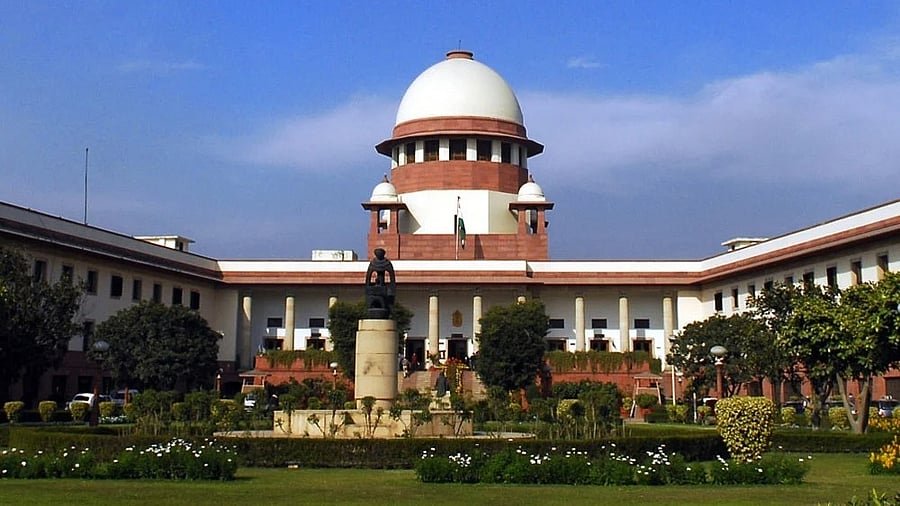
A views of the Supreme Court
Credit: DH File Photo
New Delhi: The Supreme Court on Monday flagged the issue of "oversight" and expressed having a control room without any human intervention for monitoring of feeds of CCTV cameras installed at police stations across the country.
A bench of Justices Vikram Nath and Sandeep Mehta said it would pass order on September 26 in the suo motu matter over lack of functional CCTVs in police stations.
"The issue is of oversight," the bench observed.
"What we were thinking of is a control room in which there is no human intervention. So all feeds are provided to the control room and if any camera goes off, immediately, there is a flag. That is the way this thing can be tackled. There is no other way," Justice Mehta said.
The bench said initially, there has to be an inspection of every police station, probably by some independent agency.
"We may think of involving some IIT to provide us with a solution, a software, by which every CCTV feed is monitored at a particular place and even monitoring should not be human, all by AI (artificial intelligence)," it said.
The bench said if any camera goes off, there could be immediate reporting perhaps to the legal services authority concerned or the oversight agency.
The bench also heard submissions of senior advocate Siddhartha Dave, who was appointed as amicus curiae in a separate matter in which the apex court passed an order in December 2020.
In the order the top court directed the Centre to install CCTV cameras and recording equipment at the offices of investigating agencies, including the CBI, the ED and the National Investigation Agency (NIA).
On Monday, Dave referred to a "glaring fact" and said the Centre which had at least three to four investigating agencies did not comply with the apex court's direction.
He said none of the agencies - NIA, ED and the CBI - comply with the direction.
Dave, however, said some states had complied with the December 2020 direction which asked them to ensure CCTV cameras were installed in each police station.
"Today there might be a compliance affidavit but tomorrow, there might be instances where police officers might divert or switch off the cameras," the bench said.
When an advocate for an intervenor tried to argue, the bench said, "We have not allowed your intervention application as on date. If we need your assistance, we will permit you to argue." The bench said it was a suo motu matter and it need not accept any intervention.
"We know what we have to do and how to do. If we require your assistance, we will call you. Otherwise, no intervention, nothing. This is not a public platform that you can say anything and everything. Please understand," it told the counsel.
On September 4, the apex court took suo motu cognisance of a media report which stated there were 11 "deaths in police custody in Rajasthan in the past eight months besides seven of the incidents took place in Udaipur.
The apex court in 2018 ordered installation of CCTV cameras in police stations to check human rights abuses.
In December 2020, the top court said states and union territories should ensure CCTV cameras were installed at each police station, at all entry and exit points, main gate, lock-ups, corridors, lobby and reception as also areas outside the lock-up rooms so that no part was left uncovered.
The apex court further said CCTV systems must be equipped with night vision and have audio and video footage and it should be mandatory for the Centre, states and UTs to purchase such systems that allow storage of data for a year minimum.